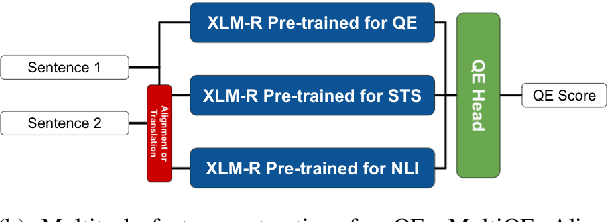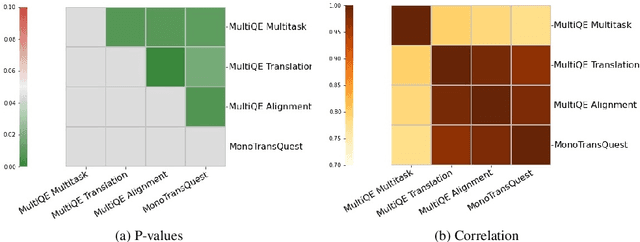Better Quality Estimation for Low Resource Corpus Mining
Paper and Code
Mar 15, 2022



Quality Estimation (QE) models have the potential to change how we evaluate and maybe even train machine translation models. However, these models still lack the robustness to achieve general adoption. We show that State-of-the-art QE models, when tested in a Parallel Corpus Mining (PCM) setting, perform unexpectedly bad due to a lack of robustness to out-of-domain examples. We propose a combination of multitask training, data augmentation and contrastive learning to achieve better and more robust QE performance. We show that our method improves QE performance significantly in the MLQE challenge and the robustness of QE models when tested in the Parallel Corpus Mining setup. We increase the accuracy in PCM by more than 0.80, making it on par with state-of-the-art PCM methods that use millions of sentence pairs to train their models. In comparison, we use a thousand times less data, 7K parallel sentences in total, and propose a novel low resource PCM method.
 Add to Chrome
Add to Chrome Add to Firefox
Add to Firefox Add to Edge
Add to Edge